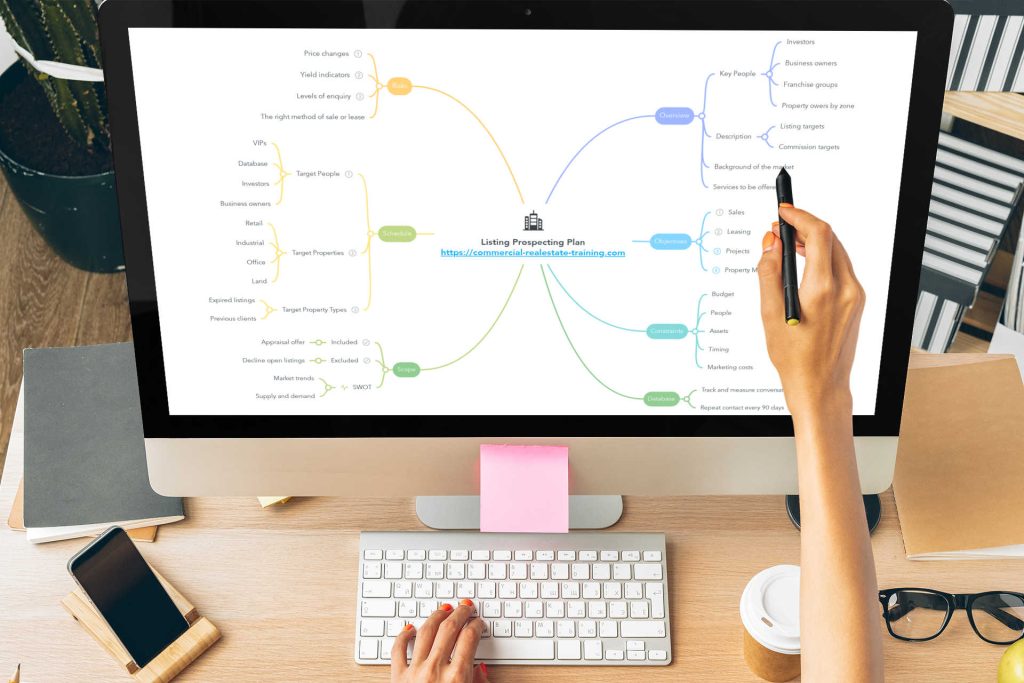Step-by-Step Guide to Real Estate Negotiation
When working as a real estate agent in commercial property, you will find plenty of situations where negotiations can be protracted, complex, or detailed.
Prepare yourself and the client for the complex property negotiation, and the questions from the very outset of the listing at its marketing.
Buyers Know Facts
The fact of the matter is that many buyers are familiar with market conditions and will pay no more than what they can afford, the property is worth, and the market may dictate.
On the other hand, the client wants the best price possible, given their awareness and experience in owning the property over time.
So between buyers and sellers, there are differences to be negotiated through. That can create an imbalance in any future negotiation and documentation. Be prepared for that.
Remember the Client
As the agent for the client, you must be prepared for the variables, the client’s instructions, and the actual market conditions. Therefore, it is all about favourable negotiation and conditioning the parties to the elements of the property market that apply.
So, a platform for a successful property negotiation with any sale or lease will be based on feedback, the client’s instructions, and the legal terms and conditions required to complete the transaction, given the property facts.
Document all Discussions
Understand that all discussions in any property negotiation should be documented and recorded so that no mistake is made when moving to the final contract between the parties.
It is common for parties to a real estate transaction to ‘change their position’ or even recall what was said and done. Be careful with that, as disagreements can lead to litigation.
As an agent, you must protect yourself from that event and situation; there is a factor of risk to watch for. Detailed notes from every meeting and discussion will help you with that.
Exclusive Listing Differences
As a special note, recognise that the negotiations applying to your exclusive listings should be given extra focus. That attention with your communications between the agent and the client.
An exclusive listing is controlled; all negotiations are similarly handled and optimised. Top agents always seek out exclusive listings.
Successful Negotiations
Here are some ideas to help you create a platform for successful real estate negotiations. Work these ideas into of your property listings you may list over time.
Comparable Properties
At the very start of the listing and the marketing activities, ensure that the client has a fully detailed comparable listing report that applies to the property type and the location.
For example, break down the price ranges and property types or areas.
Discuss Contract Terms Early
From the previous point, provide the client with price ranges that apply to the property and the location.
Talk to the client about the ideal contract terms for when the time arises. Approach the client’s legal advisers to ensure the contract terms are readily available during a negotiation.
Marketing Methods and Timelines
Provide client recommendations detailing each listing case’s marketing methods and timelines.
Some marketing methods will be traditional, whereas others will be online and more direct.
Some marketing methods will be highly successful in getting buyer inquiries and inspections up and running. So keep the client informed about the marketing results and the activities of inspections.
Best Methods of Sale
Some methods of sale are more effective than others when selling a commercial industrial or retail property today.
Choose marketing methods based on the attributes of the property, the market conditions, and the client’s requirements.
Know what they want to get a timely result. Most clients want a timely result at the best price in the shortest period. That a strategy and a timeline for the whole campaign is a good idea.
Documentation Ready
Prepare documentation detailing the property’s attributes, including location, improvements, services and amenities, and tenancy mix. This is called an information memorandum.
Supply the IM to qualified buyers through the campaign but check that the information memorandum is accurate and valid in all respects before use.
You can also have the client approve the final information memorandum before it is used in any property campaign.
So, these strategies will help you create a platform or foundation of negotiation.
Feedback is Leverage
Market property efficiently and directly, including the feedback loop to the client. Your feedback to the client will give you leverage and help build a bridge of trust.
Undertake everything comprehensively and professionally. The negotiation is then more straightforward, and the results you can achieve then align with actual property market conditions.
Finally, don’t forget to condition the client through the property campaign. That is so the seller’s expectations of price are realistic and receptive to the real market conditions.












